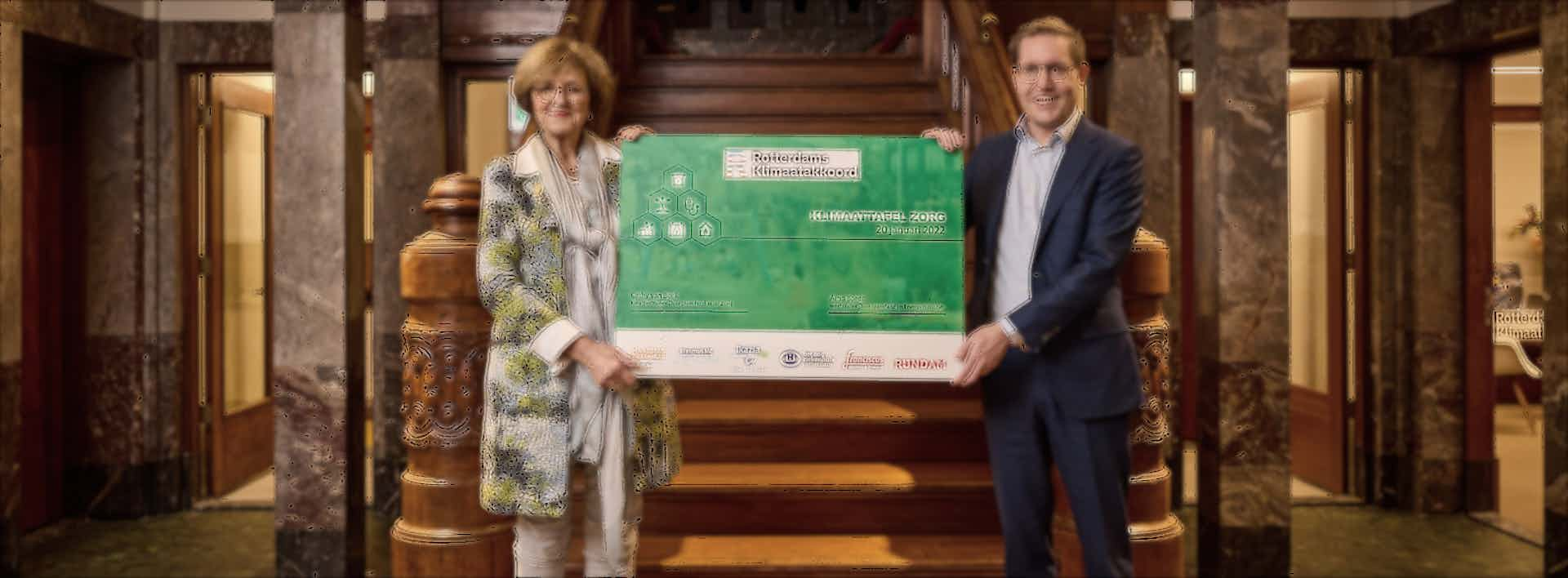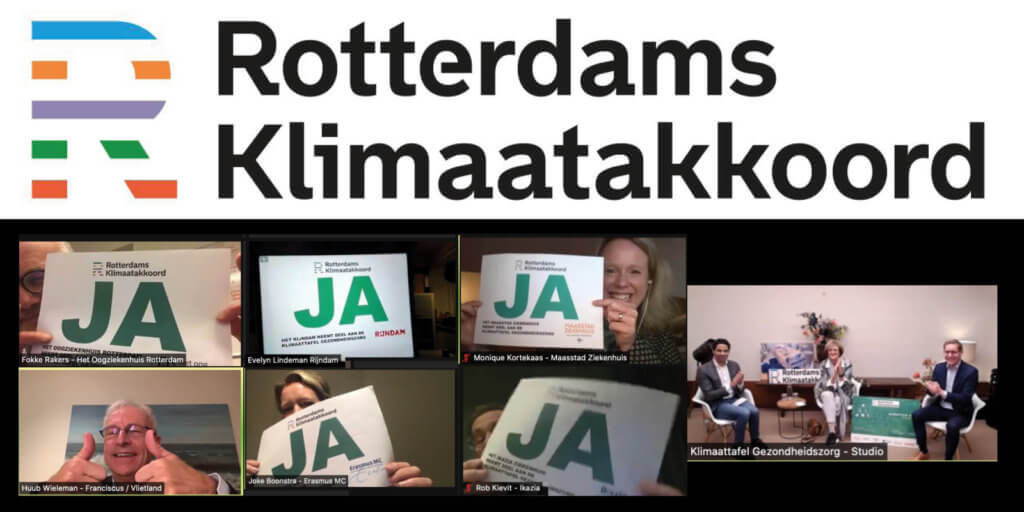
Rotterdam healthcare institutions join Rotterdam Climate Agreement
01/26/22The Rotterdam hospitals Maasstad Ziekenhuis, Erasmus MC, Ikazia, Het Oogziekenhuis Rotterdam, Franciscus Gasthuis & Vlietland and the Rijndam Rehabilitation Centre healthcare institution have joined the Rotterdam Climate Agreement. The healthcare institutions are joining forces in a new Healthcare Climate Table to accelerate the sustainability of the sector, with the aim of reducing environmental pollution and CO2 emissions.
The new climate table was launched online in the presence of sustainability councillor Arno Bonte. “Healthcare institutions and hospitals together consume a great deal of energy, food and raw materials. The sector is responsible for about 7% of total Co2 emissions, resulting in negative effects on human health and the environment. I’m very pleased that the six major healthcare institutions in the city are joining forces to implement our climate goals and that they have joined the Rotterdam Climate Agreement. The new climate table allows us to invest in sustainable care with less waste and fewer emissions, ultimately resulting in a healthier Rotterdam.”
Less waste
One of the areas the hospitals are going to be working on is producing less waste. The processing of medical waste from operating rooms accounts for about 80 percent of hospital emissions. The operating rooms in Dutch hospitals produce approximately 1.3 million kilos of medical waste every year. Mainly in the form of surgical drapes, medical instruments and face masks, all of which are intended for single use.
But, according to the brand new table chair Cathy van Beek, the Healthcare Climate Table doesn’t just address the issue of medical waste: “Together we will be looking at the sustainable purchasing of materials and energy which are used in, for example, departments in the acute chain, like the operating theatres, IC and emergency care, with the aim of increasing reuse, reducing waste and realising more energy savings. A joint approach should also serve to further accelerate the transition to more sustainable energy. The ultimate goal is to enter into concrete climate deals which will allow the Rotterdam healthcare sector to reduce CO2 emissions in the city, which, in turn, will ultimately also yield health benefits.” Cathy van Beek has been the quartermaster for sustainability for the past four years on behalf of the Ministry of Health, Welfare and Sport and has been a strong advocate for sustainability in healthcare for many years as a director.

Circularity
Tackling the waste of raw materials is also high on the new climate table’s list of priorities. “There’s definitely a great deal to gain here too, according to Bonte. “If you see that one day of IC care is equivalent to driving 2000 kilometers, using at least 15000 litres of water and deforestation of a 200 m² area, then we simply have no choice but to work towards becoming more circular as quickly as possible. That demands joint solutions.”
Green together
Peter Langenbach, Maasstad Ziekenhuis’ chairman of the board, fully agrees with the Rotterdam Climate Agreement objectives and is looking forward to the collaboration. “The participating hospitals are currently each working in their own way to make their care more sustainable. We will be joining forces by learning from and inspiring each other within the Municipality of Rotterdam’s Healthcare Climate Table. Let’s go green together!’
About the Rotterdam Climate Agreement
The municipality entered into the Rotterdam Climate Agreement with more than 100 companies and social organisations in 2019, which included 55 climate deals for the transition to a climate-neutral city. The Healthcare Climate Table is the sixth in a row in addition to the climate tables for Port and Industry, Built Environment, Mobility, Clean Energy and Circular.
Original press release: Gemeente Rotterdam
For more information, please visit www.rotterdamsklimaatakkoord.nl (Dutch website).



